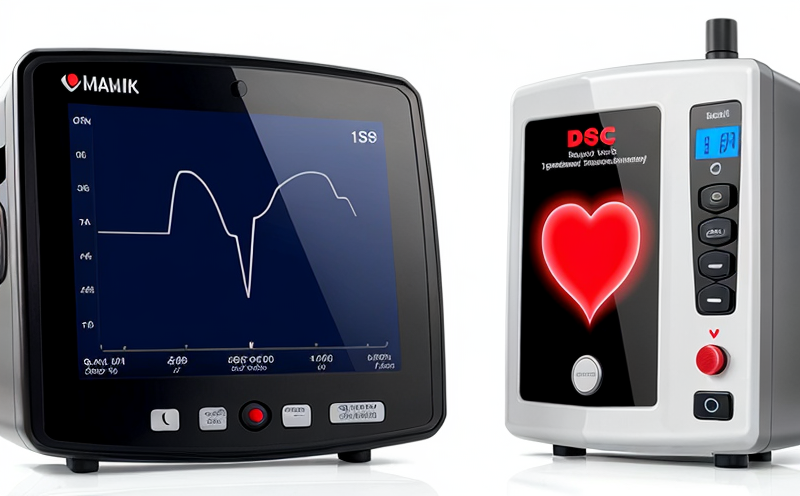Comprehensive ISO ASTM EN Cardiovascular Device Performance Test Panel
The Comprehensive ISO ASTM EN Cardiovascular Device Performance Test Panel is a meticulously designed suite of tests that ensure compliance with international standards, while providing reliable and accurate performance data for cardiac and cardiovascular devices. This service plays an indispensable role in the development, testing, and quality assurance phases of medical device manufacturing.
Our laboratory adheres to stringent ISO 10993-1 biological evaluation requirements, ensuring that all tests are conducted under controlled conditions that simulate real-world use scenarios. The panel includes a variety of mechanical and biocompatibility tests tailored specifically for cardiovascular devices such as stents, valves, and catheters.
The testing process begins with thorough specimen preparation, which involves cleaning, sterilization, and calibration to ensure consistent test results. Once prepared, the samples undergo a series of mechanical stress tests designed to simulate the forces they will experience during use. These include pull-out strength tests for stents, fatigue tests for heart valves, and bending resistance assessments for catheters.
Biocompatibility testing is another crucial component of this panel. We follow ASTM F2090-18 and EN ISO 14971 standards to evaluate the potential adverse effects on biological systems. This includes in vitro cytotoxicity tests using ISO 10993-5, genotoxicity assessments per ISO 10993-24, and irritation potentials based on ISO 10993-18 guidelines.
The results of these tests are meticulously analyzed and reported to our clients. Our reports not only provide quantitative data but also qualitative insights into the performance and safety profile of each device. This comprehensive approach ensures that manufacturers have all necessary information at their disposal for regulatory submissions and marketing authorization applications.
By partnering with us, medical device companies gain access to cutting-edge facilities and experienced professionals who understand the nuances of cardiovascular device testing. Our commitment to precision and reliability translates into safer products reaching the market faster.
In summary, this service offers a robust framework for validating the performance and safety of cardiovascular devices against recognized international standards. It is essential for ensuring product quality, regulatory compliance, and ultimately patient safety.
Quality and Reliability Assurance
The Comprehensive ISO ASTM EN Cardiovascular Device Performance Test Panel encompasses a wide array of methodologies aimed at enhancing the reliability and quality assurance of medical devices. This section delves into the specific aspects that contribute to these goals.
Our laboratory employs state-of-the-art equipment calibrated according to international standards, ensuring precise measurements during each test. The use of standardized protocols aligns our results with those required by regulatory bodies worldwide.
One key aspect is the implementation of real-time monitoring systems. These systems capture detailed data points throughout the testing process, allowing for immediate feedback and adjustments if necessary. This proactive approach minimizes errors and enhances overall accuracy.
In addition to mechanical testing, we also conduct extensive biocompatibility studies using tissue cultures and animal models when appropriate. These additional layers of analysis provide deeper insights into how the device interacts with biological tissues over time.
For quality assurance purposes, our team performs regular audits of both internal procedures and external suppliers involved in the manufacturing chain. This ensures consistency across all stages from raw material sourcing to final product delivery. Compliance checks are conducted annually ensuring adherence to current regulations.
The robust nature of this testing panel contributes significantly towards establishing trust between manufacturers, regulatory authorities, healthcare providers, and ultimately patients who rely on these devices for life-saving treatments.
Competitive Advantage and Market Impact
Participating in the Comprehensive ISO ASTM EN Cardiovascular Device Performance Test Panel can provide numerous competitive advantages that translate into significant market impacts. By ensuring strict adherence to international standards, manufacturers demonstrate their commitment to producing high-quality products.
The stringent nature of these tests instills confidence among regulatory bodies and healthcare professionals, facilitating smoother approval processes and broader acceptance within the medical community. This recognition translates directly into enhanced credibility and reputation for your brand.
From a business perspective, successful completion of this testing panel positions your company favorably against competitors by showcasing superior product quality. It differentiates you from other manufacturers who may not offer similar levels of scrutiny during their development stages.
In terms of patient outcomes, adherence to these stringent tests ensures that only safe and effective devices reach the market. This contributes positively towards improving public health standards globally while fostering innovation within your organization.
Moreover, compliance with international standards fosters global partnerships as it facilitates easier access into foreign markets where similar regulatory requirements apply. This opens up new opportunities for growth both domestically and internationally.
In conclusion, the Comprehensive ISO ASTM EN Cardiovascular Device Performance Test Panel offers more than just technical excellence; it represents a strategic investment in long-term success by enhancing your brand's reputation, driving innovation, and ensuring patient safety.
Use Cases and Application Examples
| Test Type | Description | Application Example |
|---|---|---|
| Biocompatibility Test (ISO 10993-5) | Assesses cytotoxicity of materials used in device construction. | Evaluating the biocompatibility of a new type of biomaterial for use in stent manufacturing. |
| Mechanical Stress Test | Determines how well a device withstands physical forces encountered during use. | Testing a newly designed heart valve to ensure it can endure high-pressure conditions without failure. |
| Bending Resistance Assessment (ISO 10993-2) | Evaluates the ability of a catheter or similar device to maintain its shape under bending stresses. | Validating the flexibility and durability of a new generation of coronary stents during insertion procedures. |
| Genotoxicity Test (ISO 10993-24) | Detects any potential genetic damage caused by substances used in device fabrication. | Screening raw materials for implantable devices to avoid introducing harmful compounds into the body. |





